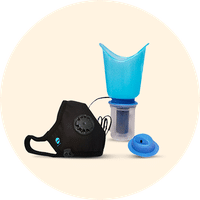Rs.312.10for 1 bottle(s) (200 ml Syrup each)
Available in other variants
food interaction for D-Peg Plus
alcohol interaction for D-Peg Plus
pregnancy interaction for D-Peg Plus
lactation interaction for D-Peg Plus
food
alcohol
pregnancy
lactation
D-Peg Plus Syrup may be taken with or without food, but it is better to take it at a fixed time.
None
None
CAUTION
It is not known whether it is safe to consume alcohol with D-Peg Plus Syrup. Please consult your doctor.
CONSULT YOUR DOCTOR
D-Peg Plus Syrup is generally considered safe to use during pregnancy. Animal studies have shown low or no adverse effects to the developing baby; however, there are limited human studies.
SAFE IF PRESCRIBED
Information regarding the use of D-Peg Plus Syrup during breastfeeding is not available. Please consult your doctor.
CONSULT YOUR DOCTOR
SALT INFORMATION FOR D-Peg Plus
Potassium Chloride(0.046mg)
Uses
Potassium Chloride is used in the treatment of potassium deficiency.
How it works
Potassium Chloride works by raising potassium levels in your blood.
Common side effects
Injection site reactions (pain, swelling, redness), Diarrhea, Muscle paralysis, Nausea, Vomiting, Flatulence, Abdominal pain, Fatigue, Febrile response, Inflammation of vein, Extravasation, Fluid overload, Increased potassium level in blood, Atrioventricular block, Slow heart rate, Arrhythmia (irregular heartbeats), Cardiac arrest
Sodium Chloride(0.35mg)
Uses
Sodium Chloride is used in short term fluid replacement after trauma and dehydration.
How it works
Sodium Chloride is a purified salt solution which works by replenishing salt and electrolyte levels in the body.
Common side effects
Increased sodium level in blood, Decreased sodium level in blood, Injection site reaction, Fluid overload, Febrile response, Extravasation, Hypotension (low blood pressure), Decreased potassium level in blood, Sodium retention, Edema (swelling), Hyperchloremic metabolic acidosis
Sodium Bicarbonate(0.17mg)
Uses
Sodium Bicarbonate is used as indigestion. It is used as an alkalinizing agent in the treatment of metabolic acidosis, severe diarrhea, acidity, and poisoning.
How it works
Sodium Bicarbonate is an alkalizer. It works by increasing the pH of blood and urine, thereby correcting metabolic acidosis (high acid levels in the body). It also speeds up the removal of toxic substances from the body in certain types of poisoning. In case of excessive fluid loss (such as in diarrhea), it works by replenishing salt and electrolyte levels.
Common side effects
Flatulence, Abdominal pain, Increased sodium level in blood, Injection site reactions (pain, swelling, redness), Lactic acidosis, Metabolic alkalosis, Peripheral edema, Seizure, Tetany, Tremors
Polyethylene Glycol(13.125mg)
Uses
Polyethylene Glycol is used in the treatment of constipation and intestine preparation before any surgery.
How it works
Polyethylene Glycol works by drawing water into the intestine through osmosis, which makes the stool soft and easier to pass.
Common side effects
Nausea, Diarrhea, Stomach pain
SUBSTITUTES FOR D-Peg Plus
No substitutes foundExpert advice FOR D-Peg Plus
- The concentration of intravenous infusion solution should not exceed 3.2 g (43 mmol)/l.
- Do not take potassium chloride if you have kidney, heart problems, high blood pressure or high blood potassium level.
- Avoid using potassium chloride, if you have Addison disease (adrenal gland disorder); severe tissue injury such as burn; severe dehydration, blockage of stomach or intestine or diarrhea from long time.
Frequently asked questions FOR D-Peg Plus
Potassium Chloride
Q. Is potassium chloride a strong electrolyte?
Potassium chloride is a strong electrolyte
Q. Is potassium chloride safe?
Potassium chloride is safe if used as recommended
Q. Is potassium chloride a base?
Potassium chloride is not a base or acid, it is neutral with a PH value of 7.
Sodium Chloride
Sodium Bicarbonate
Q. What is Sodium Bicarbonate tablet used for? How does it work?
Sodium Bicarbonate is an antacid used to relieve acid indigestion, heartburn, and gas. When taken orally, it neutralizes the acid present in the stomach by producing carbon dioxide which results in reduction of irritation in stomach and intestine.
Q. Is Sodium Bicarbonate harmful?
Sodium Bicarbonate is safe if used as a medication and as prescribed by the doctor. However, excess of Sodium Bicarbonate can disturb the fine balance of electrolytes (like sodium, potassium, carbonate, etc.) that is needed by the body to function properly. As a result, it can cause unwanted side effects. Therefore, to avoid such disturbances, Sodium Bicarbonate is usually prescribed for maximum of 2 weeks when taken orally as taking it in excess can cause transient alkalosis, which can be harmful.
Q. What if I take excess of Sodium Bicarbonate?
Excess of Sodium Bicarbonate causes alkalosis (excessive blood alkalinity) which can be observed as mood changes, tiredness, slow breathing, muscle weakness and irregular heartbeat. Muscle hypertonicity, twitching and tetany may develop, especially in patients with low levels of calcium in blood.
Polyethylene Glycol
Q. What is Polyethylene Glycol used for?
Polyethylene Glycol is a medicine used to treat constipation and for intestine preparation before surgical procedures. It works by pulling more water into the intestines, which is called osmosis. When there is more water in the intestines, the stool becomes softer or even watery and is easier to pass.
Q. What are the side effects of Polyethylene Glycol?
The side effects of Polyethylene Glycol are stomach pain, nausea, and diarrhea. However, these are usually not bothersome, but if they do not resolve, please consult your doctor.
Q. How long does Polyethylene Glycol take to work?
Polyethylene Glycol usually takes 2 to 3 days to start working. It works by increasing the fluid in the small intestine, thus making stools softer and easier to pass. As a result, a bowel movement is stimulated by causing a watery diarrhea.















